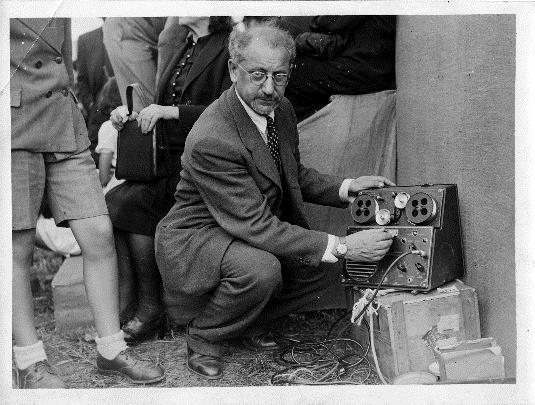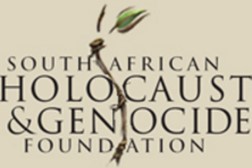In their own Words: David Boder
The voices of most of the Nazis’ child victims are lost forever, because the children did not survive. Their stories died with them.
After the war, many Jewish children who had survived were asked to share their experiences. Usually, they were either interviewed by aid workers or asked to write down their fate in school essays. Most of these early post-war testimonies are written documents, because voice recording technology was very rare.
David Boder's 'Voices of the Holocaust'
David Boder’s ‘Voices of the Holocaust’ project is the exception to the rule: he used a wire-recorder to interview 119 survivors in France, Germany, Italy, and Switzerland in 1946. 20 of his interviewees were aged between 10 and 19.
Boder's is the earliest surviving oral history project with survivors. All the interviews are freely available online, together with translations, transcripts, and further material.
Boder, a Latvian Jew who had emigrated to the US in 1926, was Professor of psychology at the Lewis Institute, a forerunner of the Illinois Institute of Technology, in Chicago. About his motivation for travelling to Europe to conduct the interviews, he said:
“For psychological as well as historical reasons, it appears of utmost importance that the impressions still alive in the memory of displaced persons of their sufferings in concentration camps and during their subsequent wanderings, be recorded directly not only in their own language but in their own voices.”
Boder, “The Displaced People of Europe”, Illinois Tech Engineer 12 (1947): 18-21.
The transcript below is an excerpt from Boder’s 1946 interview with Edith Zierer, a Jewish girl from Poland aged 15. Edith tells Boder how she was deported to Skarzysko-Kamienna, a forced labour camp in Poland, and how her knowledge of German helped her get work, despite her youth. Her family did not survive. Edith emigrated to Israel, where she died in 2014.
EDITH ZIERER: And at night we were taken…
DAVID BODER: Aha.
EDITH ZIERER: … to Skarzysko.
DAVID BODER: Now tell me, how did you travel to Skarzysko?
EDITH ZIERER: To Skarzysko? There were a hundred people to a wagon [RR-car]. No?
DAVID BODER: Men and women?
EDITH ZIERER: Hm. Only women. The women separately, the men separately.
DAVID BODER: Yes.
EDITH ZIERER: And we got a slice of bread. No? We drank a little water and traveled to Skarzysko. We did not know that we traveled to Skarzysko. We thought [we were going] to Auschwitz. And…
DAVID BODER: You did not know that you …
EDITH ZIERER: No. We thought that we were going to Auschwitz.
DAVID BODER: Did you know what was going on in Auschwitz?
EDITH ZIERER: Yes.
DAVID BODER: Now…
EDITH ZIERER: And then in Skarzysko we were disembarked, there nine hundred people, no? So they took seventy people … There were three shops. [workshops, factories, B.M.]
DAVID BODER: Yes.
EDITH ZIERER: A [somewhat] better shop, a bad one, and one very bad, no?
DAVID BODER: Yes.
EDITH ZIERER: They did … where one just could die at once. So I was [taken] to the first shop …
DAVID BODER: To the best one?
EDITH ZIERER: Yes, I was taken to the best, and since I knew German I got work, no?
DAVID BODER: They did not consider that I was a child, a box under my feet, because I was too small.
DAVID BODER: Yes.
EDITH ZIERER: And I worked.



